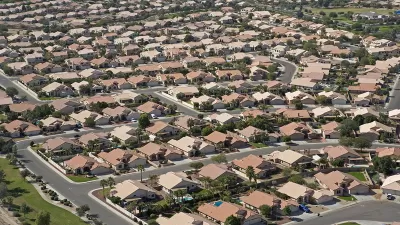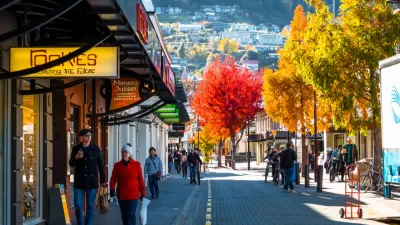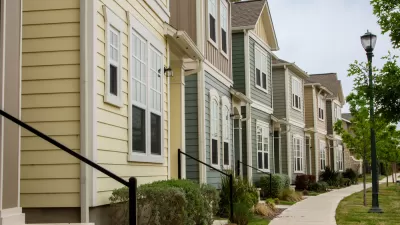The proposal would let non-profits build housing developments of up to six stories without a public rezoning process in mid-rise neighborhoods.

Vancouver's city council "is considering a staff proposal intended to make it faster, easier and less expensive to build social housing in certain mid-rise apartment zones" by allowing "non-profits to build social-housing developments of up to six storeys in these areas without requiring them to go through the expensive, time-consuming and public process of rezoning." As Dan Fumano reports in The Province, the proposal would add two stories to the height currently permitted in these areas and improve the permitting and construction timeline for social housing projects. While some of the city's housing advocates say the proposal doesn't go far enough to ease the city's housing crisis, critics "say [the changes] would also make the process less transparent and remove opportunities for public consultation."
"William Azaroff, CEO of the Brightside Community Homes Foundation, said while he supports the directions of these amendments, he would love to see them go both higher and broader, allowing eight- or 10-storey social-housing buildings and in more areas." Jill Atkey, CEO of the B.C. Non-Profit Housing Association, called the plan "a baby step in terms of improving affordability," adding that there is "nothing undemocratic" about upzoning. "People have attached this idea of attending a public hearing and voicing either their approval or opposition to the building that goes up next door as exercising their democratic rights," Atkey says, but "[w]e don’t have a constitutional right to determine who our neighbours are."
FULL STORY: Dan Fumano: 'Baby step' or too far? Vancouver city council mulls social-housing move

Study: Maui’s Plan to Convert Vacation Rentals to Long-Term Housing Could Cause Nearly $1 Billion Economic Loss
The plan would reduce visitor accommodation by 25,% resulting in 1,900 jobs lost.

North Texas Transit Leaders Tout Benefits of TOD for Growing Region
At a summit focused on transit-oriented development, policymakers discussed how North Texas’ expanded light rail system can serve as a tool for economic growth.

Why Should We Subsidize Public Transportation?
Many public transit agencies face financial stress due to rising costs, declining fare revenue, and declining subsidies. Transit advocates must provide a strong business case for increasing public transit funding.

How Community Science Connects People, Parks, and Biodiversity
Community science engages people of all backgrounds in documenting local biodiversity, strengthening connections to nature, and contributing to global efforts like the City Nature Challenge to build a more inclusive and resilient future.

Alabama: Trump Terminates Settlements for Black Communities Harmed By Raw Sewage
Trump deemed the landmark civil rights agreement “illegal DEI and environmental justice policy.”

Dear Tesla Driver: “It’s not You, It’s Him.”
Amidst a booming bumper sticker industry, one writer offers solace to those asking, “Does this car make me look fascist?”
Urban Design for Planners 1: Software Tools
This six-course series explores essential urban design concepts using open source software and equips planners with the tools they need to participate fully in the urban design process.
Planning for Universal Design
Learn the tools for implementing Universal Design in planning regulations.
City of Santa Clarita
Ascent Environmental
Institute for Housing and Urban Development Studies (IHS)
City of Grandview
Harvard GSD Executive Education
Toledo-Lucas County Plan Commissions
Salt Lake City
NYU Wagner Graduate School of Public Service





























